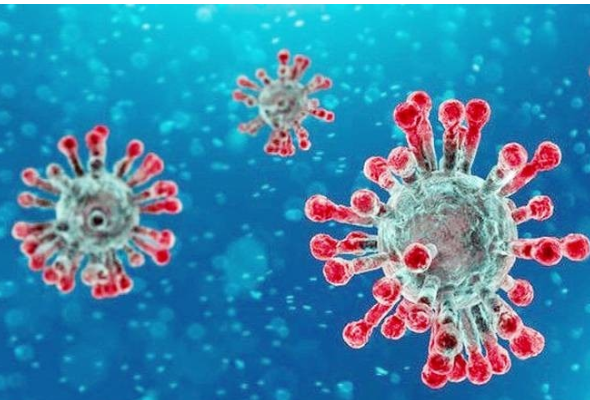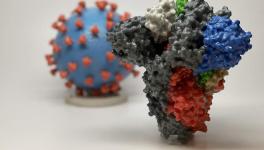COVID-19: Potential Vaccine Candidates That Have Entered Human Trials

Image Courtesy: Business Today
The outbreak of any new disease also beckons science to venture into vaccine development. Probably, vaccination is the most reliable long term protection against an infectious disease. The ongoing COVI-19 pandemic has also made researchers rush to develop a vaccine as immediately as possible. Even though vaccination is an immediate requirement, it is not a simple process and one needs to keep a critical view on these vaccine development processes are progressing.
According to World Health Organisation, as of April 11, three candidate vaccines have made their way to clinical trial, meaning, trial on humans. Overall, there are 70 candidates which have been developed as probable vaccine for COVID19.
Out of the three candidate vaccines undergoing clinical trials, the one developed by Beijing Institute of Biotechnology & Cansino Biologicals is ahead of others which is entering phase 2 of clinical trial. The other two developed by US-based drug companies Moderna and Inovio are still at phase 1 of clinical trial.
The vaccine development process undoubtedly began with the decoding of the novel coronavirus genome quite early, in January by Chinese scientists. This rapidity of genome sequencing of a virus that is the causative agent of an emerging infectious disease, was unheard off anywhere ever. Not only that, China also put the decoded genome online within two weeks, thus, enabling further research on the novel coronavirus at the earliest.
We have witnessed an unprecedented race of vaccine development amid COVID19. Moderna Inc, in collaboration with NIH (National Institute of Health), US, was the first to introduce their candidate vaccine into human trial. But, reportedly, Moderna escaped the pre-clinical trial, that is, trial on animal prior to trial on humans. The animal testing has been the conventional method before any vaccine trial on human subjects. Rather, what Tal Zaks, chief medical officer of Moderna had to say is that parallel animal trials underwent at NIH.
One argument in doing the steps in parallel, which usually go in sequential manner, is that, the outbreak emergency. As a vaccine is the crying need of the hour, so it is justified to go into it in some unconventional way, to reduce the usual time required for a vaccine to become widely available. Yet, ethical questions are being raised on rushing this vaccine, yet unproven, to go directly into clinical trials without first outweighing the risks. Jonathan Kimmelman, director of Mc Gill University’s biomedical ethics unit, was quoted to have said—“Outbreaks and national emergencies often create pressure to suspend rights, standards and/or normal rules of ethical conduct. Often our decision to do so seems unwise in retrospect.”
The Inovio vaccine candidate and the vaccine candidate developed jointly by Beijing Institute of Biotechnology (BIB) and Cansino Biologicals underwent the pre-clinical trials and were proven safe on animals and capable of eliciting immunity against the virus.
According to WHO guidelines on clinical evaluation of vaccines, pre-clinical research are carried out in labs via in vitro technique or in vivo technique on animals. After passing the pre-clinical testing, the clinical trial, trials on humans should be made. The clinical trial has three phases. The phase I is carried out by testing on a small number of subjects (around 20) and is aimed to look at the safety level. Phase II involves a larger set of subjects to judge the protective efficacy and safety fully. Then the phase III can be initiated which comprises an extensive set of subjects. Phase III is pivotal on which the decision of granting a license to a vaccine is provided.
Vaccine Candidates against COVID19 Employs Different Techniques
Not only is there an unprecedented rush to develop a vaccine, but a wide variety of technological platforms have also been put to use for the task. It also raises certain concerns. After some time, we might have few confirmed vaccines for use and quite likely they will have different techniques for their development. Then which vaccine will be most effective will also be related to the technique that was used to develop it.
The vaccine candidate developed by Cansino and BIB used the Non-Replicating viral vector as the technique. Employing this technique means that a viral vector will be inserted into the body. But the viral vector is non-replicating, meaning it cannot expand its number inside the body. In response to the introduction of the viral vector, our body generates immunity against the virus. Viral vector-based vaccines provide long term stability and a high level of protein expression and induce a greater immune response. Licensed vaccines based on recombinant proteins are already there for other diseases.
The Inovio candidate uses a DNA platform. In DNA vaccines, a DNA segment that codes for a particular viral protein is injected to the body. The DNA is taken up by the cell and produces the viral protein. The body registers an unwanted entry of the protein and develops immunity. Next time when the virus enters the body, the immune system immediately recognises the protein in the virus and eventually attacks the virus.
Moderna’s candidate used the mRNA platform. It is equivalent to the DNA vaccine, with mRNA replacing the DNA here. Notably, mRNA vaccine is the newest technique adopted for vaccine development. Vaccine against Zika virus, influenza virus, rabies virus, being the prominent ones, have used mRNA platform and have elicited potent immunity against the viruses.
The efforts for an early vaccine development is good, thanks to the rapid decoding of SARS-CoV-2 genome by Chinese scientists. But nobody knows when exactly people will have a vaccine in their nearest medical centre, nor anybody can say with certainty which type of vaccine will be the most efficient one.
Get the latest reports & analysis with people's perspective on Protests, movements & deep analytical videos, discussions of the current affairs in your Telegram app. Subscribe to NewsClick's Telegram channel & get Real-Time updates on stories, as they get published on our website.
















